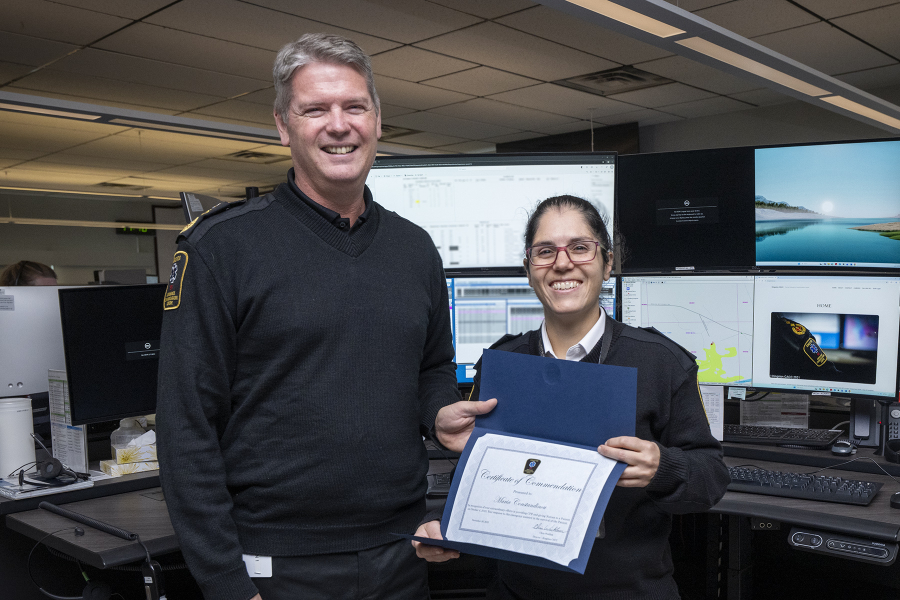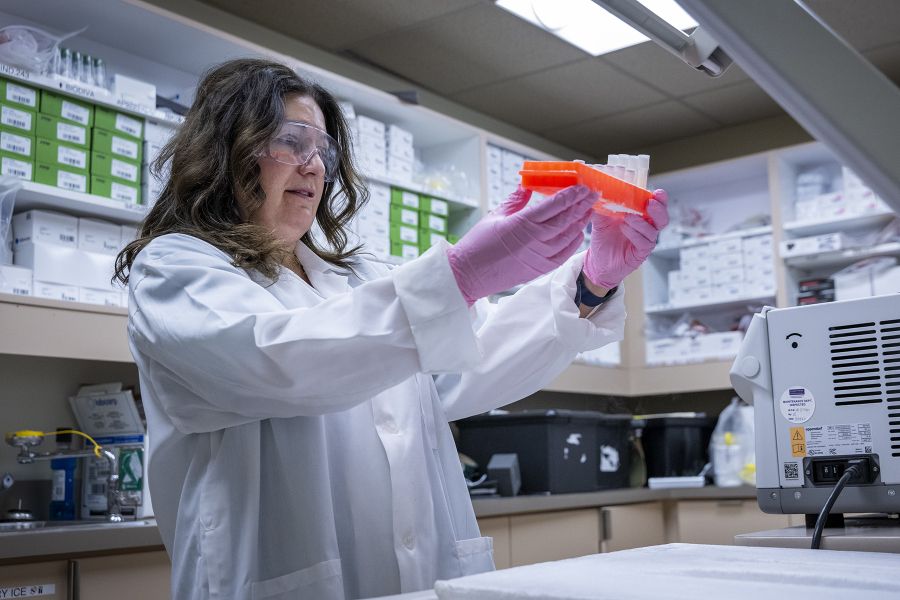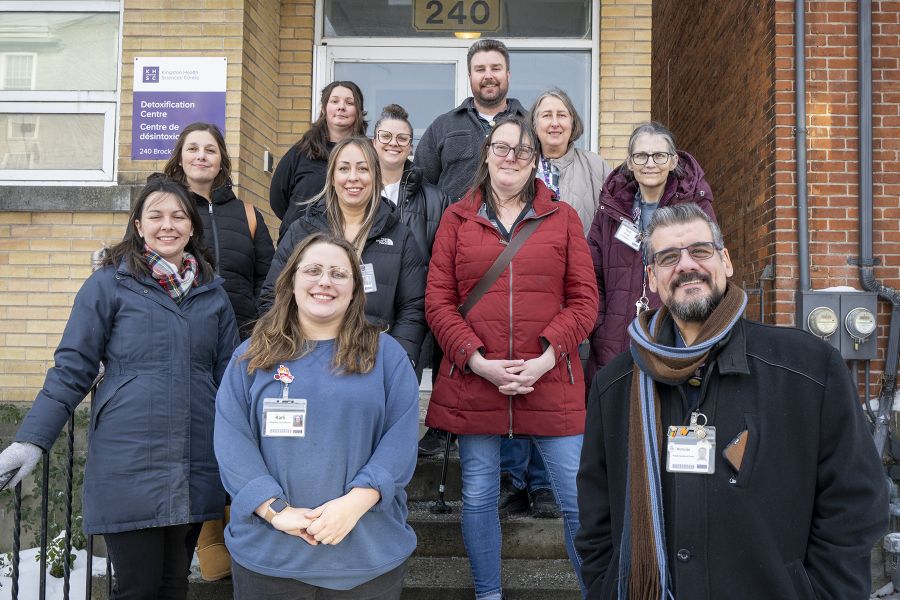Effective immediately masking is required for everyone when present on all inpatient units, in the Emergency Department (ED), the Urgent Care Centre (UCC), and the Children’s Outpatient Centre (COPC).
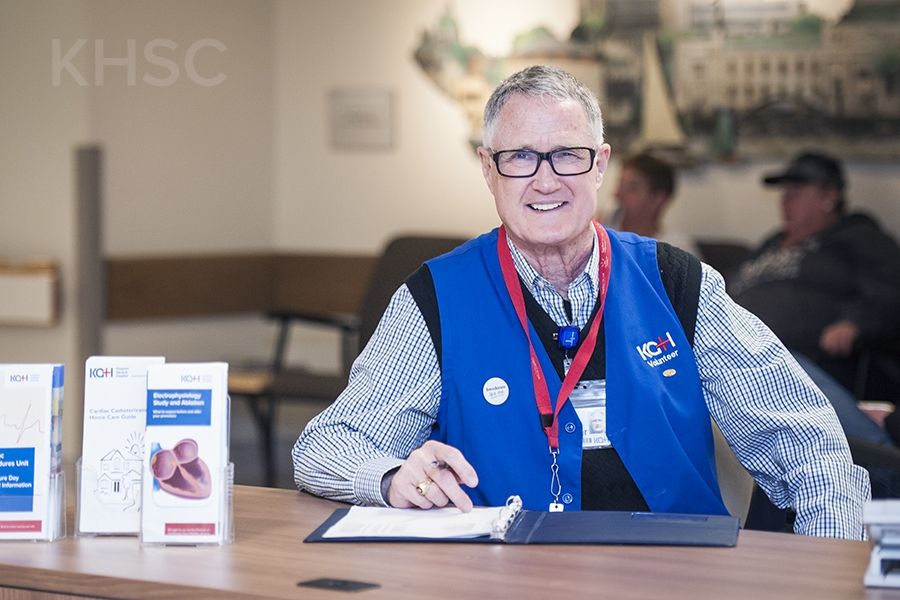
While volunteer Don Cooper wasn't sure if he’d be wearing red on Feb. 14, he knows that he’ll be at his usual hospital post on Valentine’s Day, ready—as always—to try and make life a little easier for people whose hearts need some extra special care.
One of 25 volunteers across our two hospital sites who support cardiac care clinics or programs, Cooper takes up his post every Wednesday on the Cardiac Care Information Desk at KGH, just near the Cardiovascular Lab, where he does duty as a combination sounding board, liaison and cheerleader for patients booked for cardiac catheterization procedures.
Now seven years retired as a Registered Nurse in the cardiac program, Cooper understands precisely why patients and families might be “scared stiff” as they wait for their procedure.
“Feeling healthy one day and then suddenly having the kind of chest pains or shortness of breath that requires a procedure explains why people can be very apprehensive when they arrive here. And if the procedure is delayed or they’re still coming to terms with it, that worry can increase,” he says.
“I try to be a link between the patients and families and the caregivers, helping people to know what’s going on—maybe there’s a delay because the Lab has an emergency case—and what to expect next. Some families are anxious about what they’ll see when a relative returns from open heart surgery to a nearby unit and might be alarmed when they see breathing tubes and monitors.
“People are looking for information and reassurance, and I try my best to help them get both, which seems to bring some relief at a stressful time.”
Like Don, Marion Birdsall knows what it’s like to see the tension ease. A veteran with the Helping Hearts program at KGH, whose volunteers have all had cardiac surgery, Bridsall can sense when discouragement turns around after she talks with patients and families before or after surgery.
“You walk a bit of a tightrope in those conversations because you obviously don’t have all the answers,” she admits. “But I’ve been where these people are. They might be feeling overwhelmed or exhausted by the surgery, but I try to help them understand that their reaction goes with the territory, and that the going might be rough at first but usually gets better with time.”
Tackling the practical side of recovery, she thinks, is a good grounding strategy for everyone.
‘’They’re wondering how they’ll manage the shower when they get home or how anyone can manage walking rehab when it’s icy and cold outside,” she says. “Talking about those kinds of things helps patients and families see that there’s life after surgery. That’s when I see discouragement they might be feeling turning into something a bit more positive.”
It’s witnessing that same change of heart that inspires Bea Mendoza to volunteer with the Cardiac Rehabilitation Centre at the HDH site.
A biology student at Queen’s University and weight room supervisor at the university’s gym, she helps patients to warm up and cool down after their workouts and encourages people to keep moving toward the end goal of better health.
“People are nervous at the beginning of the 16-week program, which isn’t surprising,” she says. “They aren’t sure what to expect after being ill or having surgery.
“I remember one gentleman who was very anxious about starting on the treadmill. It was tough for him to get going with any confidence. By the end of his rehab, though, he was running on that thing almost the same way I would during a workout. It was super rewarding for him, and he graduated from the rehab program with a whole new level of confidence in himself.”
Putting the rehab patient through their paces each week does her own heart good, says Mendoza.
“When I hear them talk about their journey, they’re inspirational to me.”
Gallery
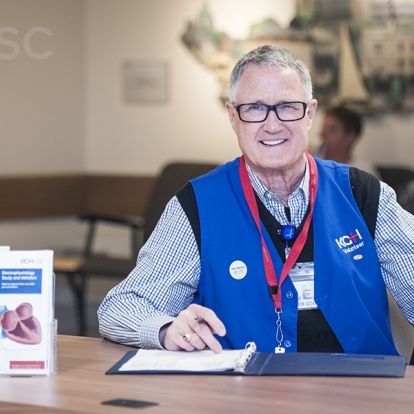
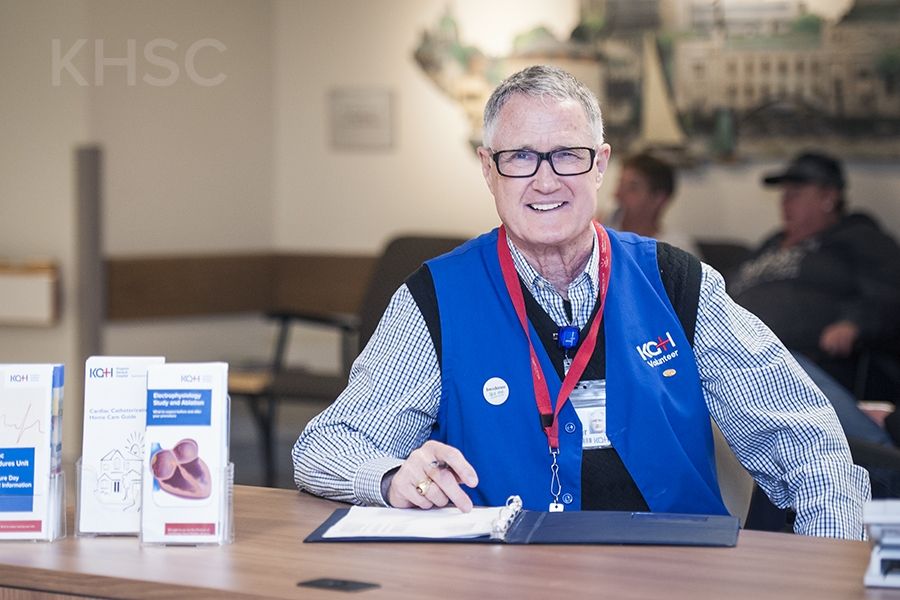
Volunteer Don Cooper greets patients from his post every Wednesday at the Cardiac Care Information Desk at KGH

